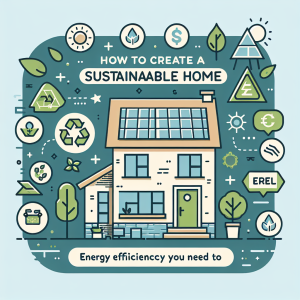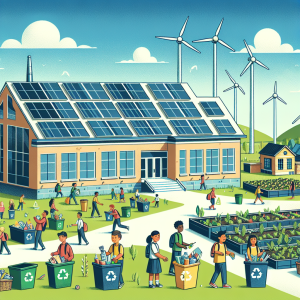How to Reduce Your Carbon Footprint
Reducing your carbon footprint is an essential step in addressing environmental challenges and combating climate change. By making small changes in our daily lives, we can significantly decrease the amount of greenhouse gases we emit into the atmosphere. One effective way to start is by evaluating our transportation choices. Choosing to walk, bike, use public transportation, or carpool instead of relying on single-occupancy vehicles can drastically cut down on personal carbon emissions. For those needing to drive, investing in fuel-efficient or electric vehicles can make a substantial difference. Additionally, regular maintenance of your vehicle improves fuel efficiency, further reducing emissions.
Another significant area to consider is home energy consumption. Simple actions such as replacing incandescent bulbs with energy-efficient LED lights, installing a programmable thermostat, and ensuring that homes are well-insulated can result in considerable energy savings. Upgrading to energy-efficient appliances also contributes to lower energy usage. Furthermore, consider switching to renewable energy sources like solar or wind power if possible. Many energy providers offer green energy options, allowing you to support sustainable initiatives without installing the technology yourself.
Dietary choices also play a crucial role in carbon emissions. Reducing meat and dairy intake and opting for a plant-based diet can lead to a significant decrease in your carbon footprint. Livestock farming is a major source of methane, a potent greenhouse gas. By choosing locally-sourced, organic produce and reducing food waste, you can further minimize your emissions. Composting food scraps is another effective way to divert waste from landfills, where it would release methane as it decomposes.
Waste reduction is integral to lowering carbon footprints. Adopting a minimalist lifestyle focused on reducing, reusing, and recycling can greatly influence greenhouse gas emissions. By purchasing less, choosing reusable over single-use products, and recycling properly, you can shrink your carbon footprint. Pay attention to product packaging and opt for items with minimal or recyclable packaging. Participating in local recycling programs and staying informed about what materials are accepted can enhance these efforts.
Water conservation can also contribute to reducing carbon emissions. Treating and delivering water requires significant energy, so using water efficiently helps. Simple habits like taking shorter showers, fixing leaks, using water-efficient fixtures, and only running dishwashers or washing machines with full loads can save water and reduce associated energy use. Collecting rainwater for garden use is another way to conserve valuable resources.
In businesses or workplaces, advocating for energy-saving policies and practices can have far-reaching effects. Encouraging the use of shared workspaces to maximize heating and lighting efficiency, promoting remote work to reduce commuting, and implementing recycling programs are excellent steps. Employers can also invest in energy-efficient office equipment and support sustainable travel practices by providing incentives for public transport use or cycling.
Responsible consumer habits are vital in the effort to reduce carbon footprints. Supporting companies with sustainable practices not only helps the planet but also encourages more businesses to adopt eco-friendly policies. Look for brands that prioritize sustainable sourcing, fair trade, and minimal environmental impact. Additionally, consider the longevity and repairability of products before purchasing, and support local economies by buying locally-made goods, which reduces transportation emissions.
Technology and digital habits also contribute to carbon emissions. Data centers consume a substantial amount of energy, so manage your digital footprint by deleting old emails, unsubscribing from unnecessary newsletters, and utilizing cloud services wisely. Streaming and online gaming can use significant data, translating to higher energy use, so reduce video quality or download instead of streaming when possible.
Educational efforts and community involvement play an essential role in amplifying individual impacts. Educating yourself and others about climate issues and carbon reduction strategies fosters a culture of sustainability. Participating in community clean-up events, tree-planting activities, or local environmental groups can spread awareness and lead to more significant communal efforts.
Lastly, advocating for systemic changes is crucial. Supporting policies and legislation that aim to reduce carbon emissions, protect natural habitats, and promote renewable energy projects can drive broader societal change. Voting for leaders who prioritize environmental issues and participating in public forums or discussions can help shape a sustainable future.
In summary, reducing your carbon footprint involves a comprehensive approach that spans transportation, energy consumption, dietary habits, waste reduction, water conservation, responsible consumer behavior, workplace policies, digital habits, and advocacy. By taking consistent, mindful actions across these areas, you can contribute significantly to environmental preservation and set an example for others to follow. The collective effort of individuals embracing sustainable practices can lead to substantial change, fostering a healthier, more sustainable planet for future generations.




